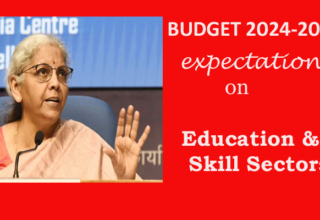
By Dr. Jyoti Kapoor, Founder and Senior Psychiatrist, Manasthali
 Mental health experts across India are of the opinion that every year before and after exam sessions, a lot of youngsters appearing in these suffer from anxiety and stress. This stress become all the more over-powering when the student appears for a competitive exam, which are highly competitive, rigorous, and target oriented. Anxiety is one of the major mental health issues students’ face just before their board exams and competitive exams.
Mental health experts across India are of the opinion that every year before and after exam sessions, a lot of youngsters appearing in these suffer from anxiety and stress. This stress become all the more over-powering when the student appears for a competitive exam, which are highly competitive, rigorous, and target oriented. Anxiety is one of the major mental health issues students’ face just before their board exams and competitive exams.
A recent study showed that among those preparing for medical entrance exams, 72.2 % experienced high levels of stress interfering with their day-to-day functioning. Most of them are a victim of burnout due to long preparation hours and uncertainty about the future. The most common complaints of such students are poor concentration level and lack of focus. A good number later on need counselling and medicines to deal with stress post their examinations.
Fear of failure keeps it going
In most of the cases, students hardly consult a mental health expert or talk about their issues with peers/parents. No recreation, continuous study for most of the day, parental pressure and fear of failure aggravate their condition. Such preparations are time-consuming and tedious, and students frequently sacrifice other aspects of their lives to focus on one test. One should not forget the fact that our brain needs break. It cannot function 24/7. The scenario become worse when results for competitive exams or board exams are not according to their expectations. The feel stuck and again go back to the same routine.
Lack of emotional support
A sound mental health depends upon multiple factors and the most important one is emotional support. If somebody has that, it ensures a healthy growth of mind, body and soul. Many students stay away from their parents (in a different city to prep for exams) or if at all they are staying with their parents, they hardly interact with them due to their busy schedule. That devoid them from the emotion support. At times, dealing with such stressed environment with no emotional support students start to feel lonely. They get addicted to unhealthy practises including excessive alcohol consumption, gambling, overeating, participating compulsively in sex, shopping or internet browsing, smoking and substance abuse.
No preparedness for failure
Unfortunately, our education system doesn’t prepare us for failure. Nobody tells us that if plan A fails then what would be plan B. That’s the reason when a student experiences failure, they feel that it’s the end of the world for them. They get exposed to enormous stress both physically and mentally. In many cases, a student might doesn’t want to appear for a competitive course and he/she is just doing because of certain family and societal pressure. These young children have known their entire lives that this one exam will determine how long they live. They have no time for extracurricular activities, socialising, or sports, which prevents their personalities from developing.
The coping mechanism
Anxiety stems from the unrealistic expectations of family members and parents. In India, success is often measured in the terms of outstanding grades. In order to achieve those, a student often goes through anxiety, stress and in extreme cases depression. Prime Minister Shri Narendra Modi in his bestselling book “Exam Warriors” talked about exams and has outlined a refreshing approach to exams, urging everyone to celebrate the exam like a festival with enthusiasm.
Below are some tips for sound mental health for students preparing for high-pressure exams:
- Create a schedule that enhances the performance of your body and mind
- Refresh your body and mind with short breaks. A short break of 15 to 20 minutes every 1-2 hours can help your body refuel.
- Consume wholesome foods and get at least eight hours of sound sleep each night.
- Long study sessions reduce the amount of time available for exercise. The body becomes lethargic as a result, and the mind begins to react negatively. Take out some time for physical activity
- Discover a calming exercise that suits your needs. It can be as simple as taking a walk outside
- Try to strike a balance
- Speak to your loved ones frequently for emotional support.
- Stay away from unrealistic expectations.










